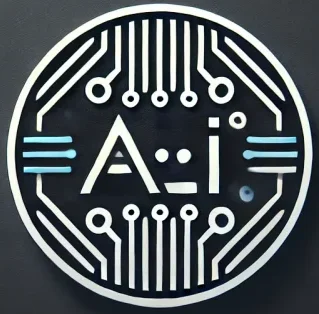### Embracing the Future: How AI Technology is Transforming Industries
In recent years, Artificial Intelligence (AI) has transitioned from a futuristic idea to a practical tool that is reshaping the way we live, work, and interact with the world. From healthcare and finance to education and entertainment, AI’s influence is pervasive, promising significant performance boosts and efficiency. This article explores the transformative power of AI technology across various sectors, highlighting key trends, applications, and considerations for businesses and individuals looking to navigate this digital evolution.
#### Key Industries Transformed by AI
1. **Healthcare**
AI in healthcare is a game changer, improving both patient outcomes and sector economics. AI-powered diagnostics can analyze data from medical imaging faster and with greater accuracy than human counterparts. For instance, AI algorithms can detect nuances in X-ray or MRI scans that might be missed by human eyes. Moreover, machine learning models are being used to personalize treatment plans, predict patient trajectories, and manage healthcare resources more efficiently.
2. **Finance**
In finance, AI is integral in automating complex and repetitive tasks, such as risk assessment and fraud detection. AI systems analyze historical data and predictive models to assess loan eligibility or detect unusual patterns that may indicate fraudulent activity. Furthermore, AI-driven robo-advisors are providing personalized investment advice to clients, democratizing access to financial planning.
3. **Retail**
The retail sector utilizes AI to enhance customer experience and streamline operations. Through machine learning algorithms, companies can predict purchasing behaviors, optimize inventory management, and personalize shopping experiences. Chatbots and virtual assistants powered by AI engage customers in real-time, providing tailored recommendations and support.
4. **Automotive**
The automotive industry is at the forefront of adopting AI technologies, especially in the development of autonomous vehicles. AI systems process data from vehicle sensors and external environments to make split-second decisions that can navigate safely and efficiently. Beyond self-driving cars, AI is also being used for predictive maintenance and manufacturing automation.
5. **Education**
AI is transforming the educational landscape by providing personalized learning experiences and automating administrative tasks. AI-driven platforms can adapt to individual learning paces, styles, and needs, potentially closing gaps in education systems worldwide. Additionally, AI tools help educators with grading and feedback, allowing them to dedicate more time to teaching and student interaction.
#### Ethical Considerations and Challenges
While AI offers vast potential, it also poses significant ethical and practical challenges. Issues such as data privacy, security, and bias need careful consideration. AI systems are only as good as the data they are trained on; hence, biased data can lead to biased decisions. Moreover, as AI becomes more integrated into critical sectors, ensuring these systems are secure against cyber threats is paramount.
#### Preparing for an AI-driven Future
For businesses, staying competitive in the AI era means adopting a proactive approach to technology integration. This includes investing in AI infrastructure, training employees with AI skills, and staying informed about AI trends and regulations.
Individuals, too, should seek to understand and adapt to AI advancements. Acquiring knowledge in AI and related fields can open up new career opportunities and allow for more informed interactions with AI technologies.
#### Conclusion
AI technology is not just a tool of the future; it is a dynamic catalyst for innovation today. By understanding and integrating AI, sectors across the board can achieve unprecedented efficiency and offer enhanced services. However, navigating this AI-driven landscape requires awareness of its capabilities, challenges, and impacts. As we continue to explore the vast potentials of AI, it is crucial to foster discussions that lead to responsible and equitable use of AI technologies.
In embracing AI, we are not just adopting new technology but pioneering a new era of digital intelligence. The journey of AI integration is ongoing, and it promises to be as transformative as it is inevitable.
